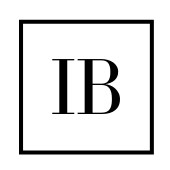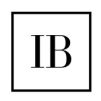Are you Clear of your Founder's Role in your Business?
The lines between an Entrepreneur and an Enterprise Owner are often confused as the same thing.
While both roles share a passion for building something remarkable, the journey from one to the other is a transformative process that requires a shift in mindset and approach.
The success of a business is dependant on the Entrepreneur ‘wanting’ to make the transition. The growth of a business is stunted not by the lack of opportunities but by the interference of the Entrepreneur.
An Entrepreneur is continually looking for opportunities. It’s in their DNA. Their purpose is to take risks and innovate. In the beginning, that’s exactly what is needed for the business the thrive. However, there is a point in a business lifecycle where innovation no longer is a requirement.
It requires a level of planning and patience. As many Entrepreneurs are quick-starts they want a result NOW.
- This causes disruption as the team has yet to bed down the previous idea.
- Staff are uncertain of the direction as the Entrepreneur chases rabbits.
- The market becomes confused about the product that is offered.
Neither are a contributor to profit.
Understanding the stages of a business cycle and the role of the founder through this cycle means the founder can:
- Stay in their Lane and be the most effective;
- Stay in Control AND be less Controlling;
- Keep an eye on the opportunities to innovate;
- Allows the team to consolidate and set the foundations for growth.
- Keeps the Founder excited and passionate about their businesses future.
Stages of Business Transformation
There are five stages of business
Stage 1 – Start-up
Stage 2 – Early Growth
Stage 3 – Rapid Growth
Stage 4 – Maturning
Stage 5 – Renewal – Transition
Business Stage #1 | Founder’s role | Management Style and Focus |
Start Up Ideation Market validation Product/Service development | Entrepreneur Visionary Risk-taker Hands-on approach
| Customer & Sales Product management Building a customer base Financial management |
Stage 1 Transformational Blockers
Lack of funding and/or time that allows the Founder to confidently embrace and exhibit the Entrepreneurial Spirit
Great idea but servicing a market that is in decline or unable to pay.
Being too broad in their offer. The inability to niche.
Business Stage #2 | Founder’s role | Management Style and Focus |
Early Growth Establishing Operations Increasing sales volume Managing Cash-flow | Entrepreneur/Operator Multi-tasker Problem Solver Leadership
| Revenue, Profit and Systems Client acquisition and sales Building a team Systems and processes design |
Stage 2 Transformational Blockers
Thinking that the business revolves around the Founder.
Inability to delegate accountability and trust the people employed to do the job.
Saying Yes to every opportunity.
Business Stage #3 | Founder’s role | Management Style and Focus |
Rapid Growth Expanding market share Scaling operations Increasing complexity | Manager/Leader Delegation Strategic Planning Developing internal Capacity and Capability
| Systems and Processes Optimising SOP’s Talent Management Compliance and Governance |
Stage 3 Transformational Blockers
Impatience and looking for more, and different, opportunities
Inability to trust in the systems and processes
Feeling the need to provide innovative and untested customer solutions.
Discounting
Business Stage #4 | Founder’s role | Management Style and Focus |
Maturing Securing market position Locking down operations Banking profits | Leader/Strategist Visionary Deliberate and decisive decision maker Mentor
| Scaling Continuous improvement Succession Planning Corporate Governance |
Stage 4 Transformational Blockers
Believing your own BS.
Being complacent and taking people and customers for granted.
Not re-investing into the business assets (especially people)
Business Stage #5 | Founder’s role | Management Style and Focus |
Renewal/Transition Exploring new opportunities Diversification Exit Strategies | Entrepreneur/Exit Strategist Catalyst for change Risk assessment Exit planning
| Business Value Growth areas Maximising business value Turn-key handover |
Stage 5 Transformational Blockers
Short-term thinking
Excluding the staff from the potential exit benefit
Excluding alternative exit strategies
The context of running a business
An overarching contextual thinking of a founder is to allow the environment where:
There is an acknowledgement of strengths and limitations
Surrounding yourself with the right team and advisors
Finding industry peers as mentors and guides
Create a turn-key operation that limits the focus on an individual and promotes a trust in systems and processes.
Continually make deposits into the Trust Bank to create a clear pathway to a business Village Culture.



